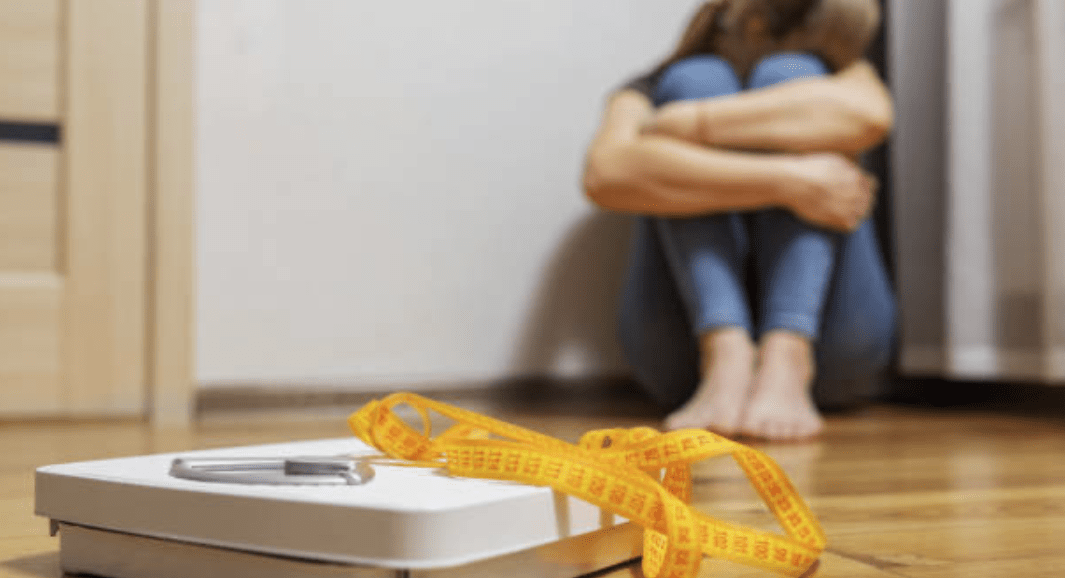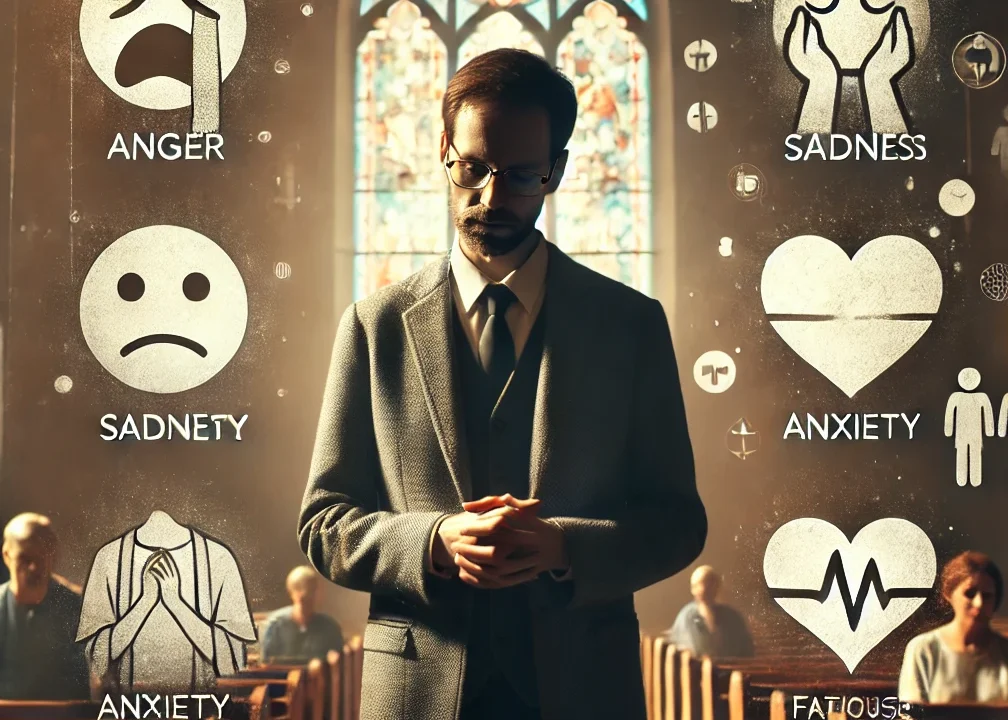Eating Disorder: Helping Your Spouse During Treatment
This article is based on scientific evidence and clinical experience, written by a licensed professional and fact-checked by experts.
Posted: May 30, 2018
Estimated reading time: 4 minutes
In This article

If the woman you love is struggling with an eating disorder, you may find yourself feeling helpless and confused. You may be thinking “How could this amazing woman struggle with seeing herself as beautiful or want to lose weight?” The journey to recovery from an eating disorder is not an easy one. What your wife needs the most is your support and understanding as she works through the difficult issues surrounding her eating disorder. The following are a few other helpful pieces of advice as you support your wife through treatment.
Be Patient
Eating disorders are difficult to treat, but not impossible. For this reason, you may be the spouse of a woman who has struggled with an eating disorder throughout her life. This is why the first suggestion is to be patient. It can take years to treat an eating disorder in outpatient treatment. Having this information will help you understand your wife’s eating disorder will not be treated in a few sessions or a few months of sessions. You must give your spouse time to work on the issues that led to the eating disorder without pressure to just “get over it” or “just eat.”
If you are struggling with being patient, it may be helpful for you to read some of the materials your wife’s treatment team has assigned her for homework. Make sure to ask your wife first if she would feel comfortable with this. Reading information on the types of skills your wife is learning about her eating disorder may help you understand the difficult journey she is taking. If she is supportive of your reading, be sure not to “talk at her” about the things you are learning or how she needs to do such and such differently. While it comes from a place of trying to help her, it is usually counter-productive to the love and patience she needs from you.
It’s Not Just About Food
Your first reaction to your wife’s eating disorder may be to encourage her to eat or to help her follow her very restricted list of safe foods. You mistakenly believe the issue must be food or your wife getting back to a healthy weight. While you may see your wife’s lack of food intake, reduction in weight, overeating, and/or purging as the main issue, in actuality, it is only a symptom of the underlying issues.
What underlying issues? Your wife’s eating disorder could have been caused by a variety of different issues: past abuse, control issues, unresolved relationship issues, or insecurities. These are just a few basic examples. Eating disorders usually have many components. Therefore, when thinking about helping your wife or responding to her, think of the eating disorder as an emotional issue rather than a food or weight issue. This mindset will set you up for better communication when discussing your concerns with your wife.
Comment/Reinforce Qualities Other Than Body & Food
With the above information in mind, it is best to promote the qualities you admire, love, notice, and appreciate that do not deal with her body or food. For your wife, every day includes unrelenting thoughts about food. These thoughts include: why did I eat that?; how many calories have I eaten today?; I can’t believe I ate that; if I eat that, I have no self-control; or if I eat that, I will gain weight. Also, your wife has many negative thoughts about her body: I am so disgusting; If only I were thinner…; I just need to lose 10 more pounds; I am so fat!; I hate my body!; or Why would my husband want to see me naked? When you do praise her body, she is thinking of ten things wrong with the part of her body you just complemented.
The following are helpful compliments you could give your wife:
- “I am so proud of your hard work in therapy. I know it is difficult for you to go every week and talk about your eating disorder. I want you to know I support you and want to help any way I can.”
- “I love you. You are a great wife and mother. You take such good care of me and the kids.” (Give a few specific examples of how you have appreciated your wife).
- “I am so thankful for the work you do at your job/home. Without your help around the house/job, it would be difficult for our family to function.”
- “I enjoy your sense of humor. You can always make me laugh.”
- “Can we go on a date? I love spending time with you, and I feel like we have not had just us time.”
- “I really appreciate your gentleness. You have a special way of relating to people and helping me feel loved.”
Lack of Intimacy
One aspect of your relationship with your wife that you most likely noticed before she went into treatment was a lack of emotional and physical intimacy. These topics are difficult to discuss, therefore, you may have tried to avoid the topic. First, emotional intimacy is avoided when an individual is struggling with an eating disorder. At all costs, the person will try to convince everyone around her that she is fine; there is nothing wrong. In this way, your wife has isolated herself emotionally from you and others in order to continue in her eating disorder. If she was emotionally close to anyone, her eating disorder would have no purpose. With no emotional intimacy, physical intimacy is also difficult. While it is possible to be sexually intimate with no emotional connection, it is not preferable. Due to your wife’s obsession and hate of her body, she probably has barely allowed you to touch her. The lack of intimacy in both areas (emotional and physical) will be very difficult. It is imperative you continue to support your wife in her treatment. Through treatment, these barriers will be broken down. If in your fear and hurt you attempt to move your wife along too quickly, it will end in her pushing herself further away from you emotionally and physically. For more information and fear of intimacy in eating disorders, see my article titled Intimacy and Eating Disorders which is found on mycounselor.online.
Feelings of Isolation
It will be the desire of your wife to keep her eating disorder secret. You may have been oblivious to it even though you have been living in the same house with her. Due to her secrecy, it can feel lonely and be isolating if you do not have your own support group. It is important you respect her wishes on whom she wants to disclose her eating disorder to and when, but also receive support for yourself. It may also be helpful to identify a couple of male friends whom you can confide in and have as a support network. It would be most helpful for you to discuss with your wife the specific people you feel would be helpful for your own support. During this discussion, let your wife know that you would be specifically asking them for help in you being able to support her. You will need to reassure your wife that you will not be sharing intimate details about her struggles rather gaining support from others to be able to support her. Remember you can respect your wife’s privacy along with seeking your own support during her treatment.
Ask For Help
If you feel overwhelmed or do not know how to react to finding out your wife is struggling with an eating disorder, do not hesitate to seek help for yourself. The impact on seeing your wife struggle can take a huge toll on you. If you are not at your best, you cannot be the best support for your wife. In order to respect your wife’s privacy, it may be helpful for you to seek out caregivers support group at the treatment center she attends. Also, it may be beneficial for you to see your own individual therapist in order to process the emotions you have about seeing the woman you love struggling with an eating disorder. The best place to start is to share with your wife that you would like to seek help yourself in being able to help her. Next, seek the advice of the treatment center she is attending on the best resources for spouses and family members of eating disordered sufferers. It is important to say again to not hesitate to ask for help. It is one of the best steps you can take to help in the treatment of the eating disorder.
If you or someone you know is struggling with an eating disorder, please contact mycounselor.online. We have experience with eating disorder treatment and know how to help.
Back to topThis article is based on scientific evidence and clinical experience, written by a licensed professional and fact-checked by experts.
About the Author

September Trent
September Trent MS, LPC has a Masters in Counseling. She is also an Attachment Focused EDMR therapist trained by the Parnell Institute. She is a Licensed Professional Counselor (LPC), holding her license in Missouri.
Learn More About SeptemberIn This article
References
- Costin, C. (1999). Guidelines for significant others. The eating disorder sourcebook: A comprehensive guide to the causes, treatments, and prevention of eating disorders (2nd ed) (pp. 95-106). Los Angeles, CA: Lowell House.
- National Eating Disorder Association








